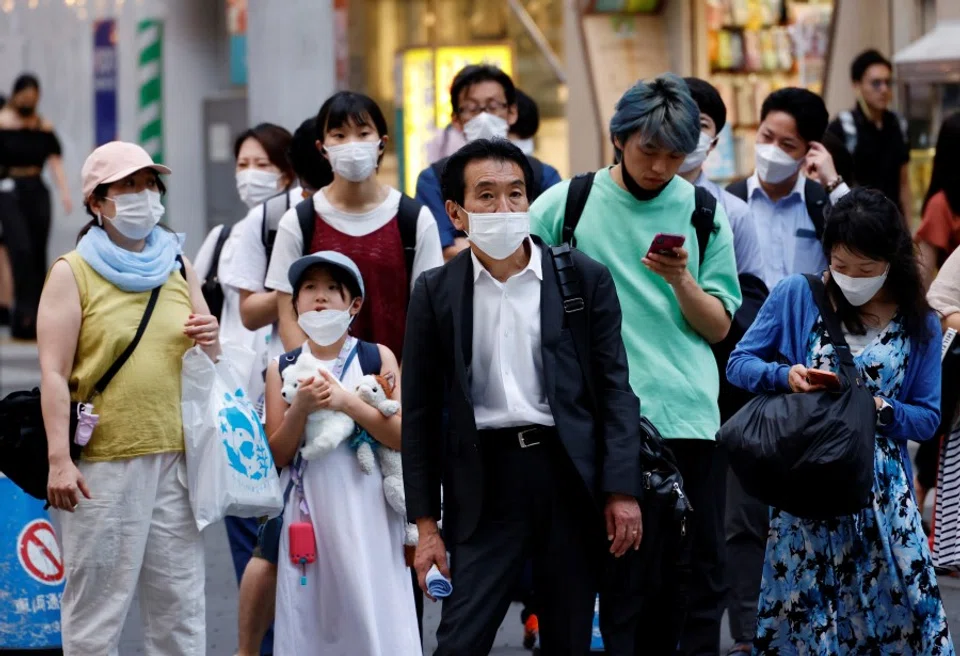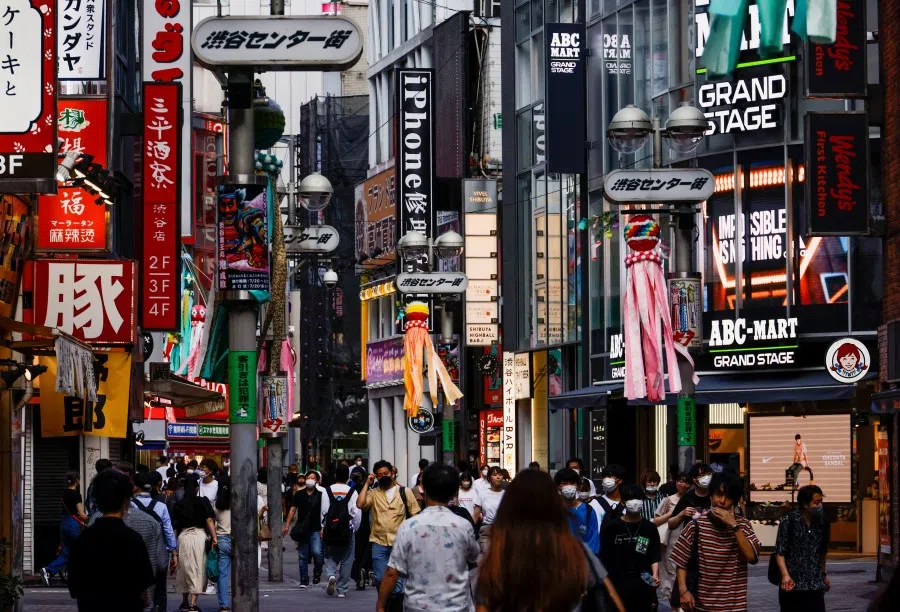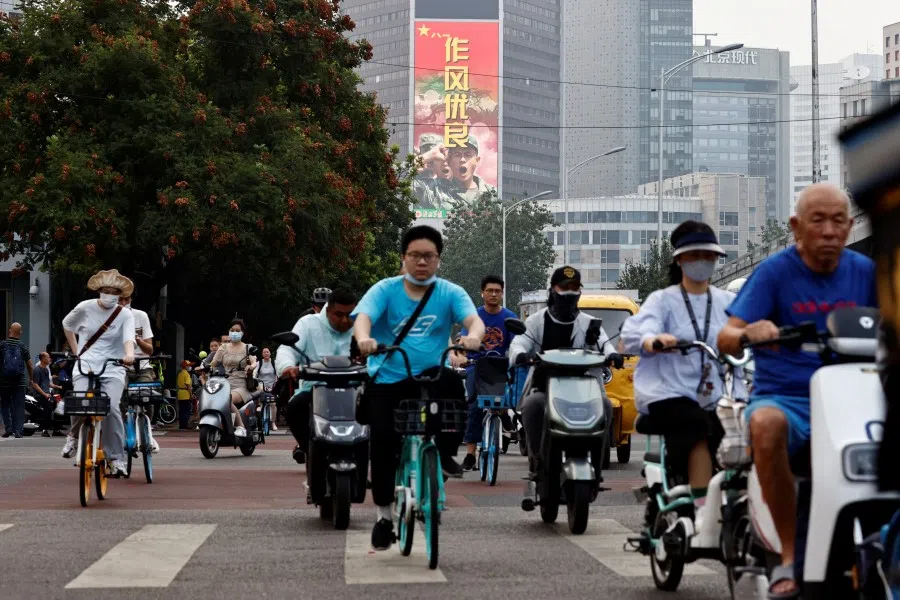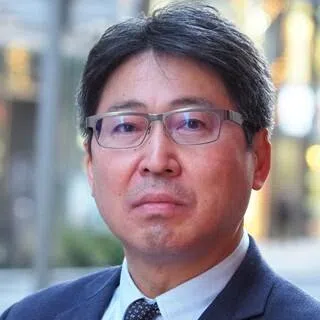The generation gap in Japanese attitudes toward China
There is a distinct difference in how younger and older Japanese perceive and feel about China - generally, the younger generation feels more positive about China than their seniors. This can be attributed to their different shared experiences and common sentiments among peers. Japanese academic Shin Kawashima points out the various factors leading to this divergence.

The generation gap in Japanese public opinion and attitudes toward China is becoming increasingly clear. Although this trend has been apparent for some time, it has become more striking as a result of recent events such as the Covid-19 pandemic and the Russia-Ukraine War.
Japan and South Korea's generation gap
In the Public Opinion Survey on Diplomacy by the Cabinet Office of Japan conducted at the end of 2021, just over 10% of respondents in their 60s and 70s - those with the harshest attitudes toward China - answered that they felt "close, friendly or familiar" with China. On the other end of the spectrum, over 40% of respondents aged 18 to 29 gave the same response. This indicates that the younger generations are more likely to have better perceptions of China.
According to a survey conducted by the Pew Research Center in June 2022, Japan is among the countries with the largest generation gap in terms of people's perceptions of China, whereby the younger generation in Japan has a more favorable impression of the country.
... the Japanese population is rapidly ageing, which makes it harder for the voices of the younger generation to be reflected in policies.
The survey also showed a large generation gap in South Korea; however, the situation is the opposite of that in Japan - the younger generation in South Korea has a more negative perception of China than older generations.

In Japan, it is a sad fact that those aged 50 and over - predominantly men - hold the power in policymaking, whether they are bureaucrats or parliament members. Moreover, the Japanese population is rapidly ageing, which makes it harder for the voices of the younger generation to be reflected in policies.
For the Japanese people aged 20 and below, the presence of military and political pressure from China has been normalised since their childhood...
For these reasons, the younger generation's positive perception of China is unlikely to have any immediate effect on Japanese government policy, but could become the basis for major changes in relations between Japan and China in the future.
Reversal of fortunes
But what has caused this change? The simplest explanation is the difference in experiences: whether people have experienced the reversal in economic and national power between the two countries.
For example, there was the reversal in GDP rankings in 2010. Most Japanese people in their 20s, let alone teenagers, have no memory of - or have never experienced - a time when Japan was economically superior to China. By contrast, there are many people in their 50s and older who never imagined that China's economy would overtake Japan's.
The same applies to threats from China. For the Japanese people aged 20 and below, the presence of military and political pressure from China has been normalised since their childhood, and there has been no perceivable change. Meanwhile, those in their 50s and older have experienced an increase in the threat posed by China's military power, along with changes in China's attitude toward territorial disputes and its shift toward an increasingly hardline approach.
When I speak with the younger generation, however, they point out a different reason. The Japanese society has seen significant transformation amid its rapid internationalisation since the 1980s. In particular, many younger Japanese people have now had Chinese classmates since childhood. In fact, the population of Chinese nationals in Japan is around 700,000, and even higher if Japanese nationals with Chinese backgrounds and ethnicity are included.
... from the Chinese perspective, the young people may be a reliable ally to win over the Japanese society...

So, will this generational gap in perceptions of China have any actual impact on politics? This will prove difficult in Japan. As I mentioned earlier, Japan is a rapidly ageing society, where the majority of voters are senior citizens. It is not easy for the young people to influence politics and other areas in this so-called Silver Democracy.
Potential ally for the future
There is the view that these younger demographics will also take a tougher stance toward China as they grow older. However, from the Chinese perspective, the young people may be a reliable ally to win over the Japanese society, where over 80% of people do not feel close, friendly, or connected with China. Youth exchanges will surely become important for China in the future.
... the generation gap in Japanese society has become very large in many ways - but Japanese political and business circles remain relatively indifferent.
Meanwhile, neighbouring South Korea is also known for its generation gap in popular sentiments toward China. However, in contrast with Japan, the younger population in South Korea has more negative perceptions of China, possibly due to the sanctions relating to the THAAD (Terminal High Altitude Area Defense) missile defence system they experienced during their youth. For China, the middle-aged and elderly demographics in South Korea will be easier to win over.
In fact, the generation gap in Japanese society has become very large in many ways - but Japanese political and business circles remain relatively indifferent. In terms of foreign policy, it seems that the "ideal vision" of Japan changes from generation to generation, and there is a possibility that major changes are currently taking place in Japanese society.
Related: Are Chinese fears of a rise in Japanese militarism post-Abe valid? | Constitutional revision is not entirely Japan's domestic affairs | Why Japan and China have totally different ideas of their foreign ministers' meeting | Foreign and security policy in Japan's upper house elections | How Japan's political stance is becoming increasingly hawkish and conservative





